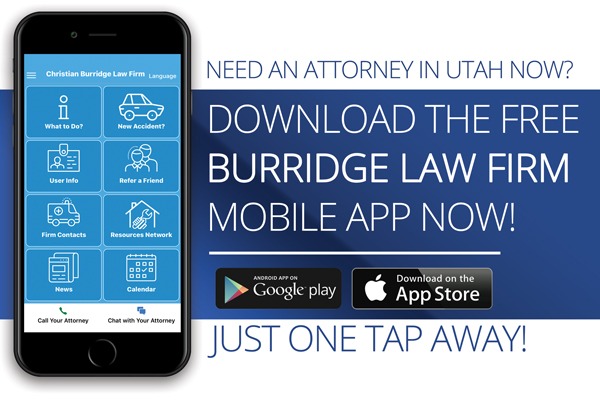When you lose a loved one unexpectedly in Salt Lake City, collecting evidence might be the last thing on your mind. However, the evidence you gather in the days and weeks after the death can make a crucial difference in proving what happened. Let me explain what you need to know in simple terms.
Start with Photos and Videos
In today’s world, our phones can be powerful tools for collecting evidence. If your loved one died in a car accident on State Street or in a workplace accident at a construction site near City Creek Center, photos and videos of the scene tell an important story.
For example, if your family member died in a crash near Fashion Place Mall in Murray, take pictures of:
- Skid marks on the road
- Damage to all vehicles involved
- Traffic signals and signs
- Weather conditions
- Any security cameras nearby
Don’t assume police will get all the photos you need. Their pictures focus on criminal evidence, while you might need different details for your wrongful death case.
Medical Records Matter
Here in Salt Lake City, your loved one might have received care at several facilities. Maybe they went first to St. Mark’s Hospital, then transferred to University of Utah Hospital. You’ll need records from each place.
Getting medical records takes time. Start by requesting:
- Emergency room records
- Hospital admission notes
- Surgery reports
- Lab results
- Medication lists
- Doctor’s notes
- Nursing notes
Remember, Intermountain Healthcare, University of Utah Health, and other local systems each have their own process for requesting records. Don’t get discouraged if it takes several tries.
Witness Information is Critical
People who saw what happened often provide crucial evidence. If your spouse died in an accident at a job site in West Valley City, coworkers might have important information. If your parent died from a fall at a nursing home in Holladay, other residents or staff members might have seen what happened.
Write down names and contact information for witnesses right away. People move frequently in our growing city – that witness working at the South Salt Lake warehouse today might take a new job in Lehi next month.
Keep a Daily Journal
Your own notes can provide valuable evidence. Start a journal writing down everything you remember about:
What your loved one told you before the death. Maybe they mentioned safety concerns at their Sandy workplace, or complained about poor care at their Millcreek nursing facility.
Conversations with others about the death. Did an employee at the Taylorsville store admit they knew about dangerous conditions? Did a nurse at Salt Lake Regional Medical Center mention previous similar incidents?
Changes you notice in documents or conditions. Has the Murray construction site where your loved one died suddenly started using new safety equipment? Did the Sugar House nursing home change their policies right after the death?
Evidence from the Scene
Physical evidence from where the death occurred can disappear quickly. In a workplace death at a downtown office building, cleaning crews might remove important clues. At a construction site near the University of Utah, work continues and conditions change daily.
If possible, collect or photograph:
- Equipment involved in the accident
- Warning signs (or lack of them)
- Maintenance records
- Safety equipment
- Work orders
- Inspection reports
Electronic Evidence Matters
In today’s world, important evidence often exists electronically. Text messages between your loved one and their supervisor at their Draper workplace might show safety concerns. Emails from the Cottonwood Heights nursing home staff might reveal they knew about problems.
Save everything electronic:
- Text messages
- Emails
- Social media posts
- Voice messages
- Security footage
- Computer files
Employment Records Help
If your loved one died while working, employment records provide important evidence. These might show:
Training records from their job at a warehouse near the Salt Lake International Airport Safety meeting attendance at their construction site in the Avenues Complaints filed about dangerous conditions at their Rose Park workplace Previous incidents at their Glendale manufacturing job
Getting Professional Help
Gathering evidence properly takes knowledge and experience. Our Salt Lake City wrongful death attorneys can help by:
Acting quickly to preserve evidence before it disappears Sending legal notices requiring evidence preservation Getting court orders to access security footage Finding and interviewing witnesses Working with accident reconstruction experts Analyzing electronic evidence properly
Why Time Matters
Evidence can disappear quickly in Salt Lake City’s fast-growing environment:
- Construction sites change daily
- Witnesses move away
- Security videos get erased
- Records get “lost”
- Conditions get fixed
- Memories fade
Let Us Help Preserve Your Evidence
Don’t risk losing crucial evidence in your wrongful death case. Our experienced legal team can help you:
Identify important evidence Preserve it properly Analyze its significance Use it effectively
We offer:
- Free initial consultation
- Home or office visits
- Evening appointments
- Clear guidance
- No fee unless we win
Contact our Salt Lake City wrongful death attorneys today. Let us help you gather and preserve the evidence you need to prove your case.
Disclaimer: This information helps Salt Lake City families understand evidence gathering but isn’t legal advice. Every case needs different evidence. Please talk with a qualified attorney about your specific situation.



